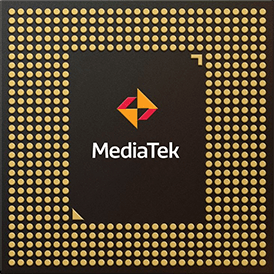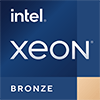
MediaTek Dimensity 920 Benchmark, Test and specs
Last updated:
The MediaTek Dimensity 920 has 8 CPU cores and can process 8 threads at the same time. The processor was presented in Q3/2021 and is based on the 2. Generation of the Mediatek Dimensity series. In the Geekbench 5 benchmark, the MediaTek Dimensity 920 achieved a result of 768 points (single-core) or 2,277 points (multi-core).

| Name: | MediaTek Dimensity 920 |
|---|---|
| Family: | Mediatek Dimensity (36) |
| CPU group: | MediaTek Dimensity 900 (3) |
| Architecture: | Cortex-A78 / Cortex-A55 |
| Segment: | Mobile |
| Generation: | 2 |
| Predecessor: | -- |
| Successor: | -- |
CPU Cores and Base Frequency
The MediaTek Dimensity 920 has 8 cores. The clock frequency of the MediaTek Dimensity 920 is 2.50 GHz. An initial performance assessment can be made using the number of CPU cores.
| CPU Cores / Threads: | 8 / 8 |
|---|---|
| Core architecture: | hybrid (big.LITTLE) |
| A-Core: | 2x Cortex-A78 |
| B-Core: | 6x Cortex-A55 |
| Hyperthreading / SMT: | No |
|---|---|
| Overclocking: | No |
| A-Core Frequency: | 2.50 GHz |
| B-Core Frequency: | 2.00 GHz |
Internal Graphics
The MediaTek Dimensity 920 has an integrated graphics that the system can use to efficiently play back videos. The MediaTek Dimensity 920 has the ARM Mali-G68 MP4 installed, which has 4 streaming multiprocessors (64 shaders).
| GPU name: | ARM Mali-G68 MP4 |
|---|---|
| GPU frequency: | |
| GPU (Turbo): | No turbo |
| Compute units: | 4 |
| Shader: | 64 |
| Hardware Raytracing: | No |
| Release date: | Q2/2020 |
| Max. displays: | 1 |
|---|---|
| Generation: | Vallhall 2 |
| Direct X: | 12 |
| Technology: | 6 nm |
| Max. GPU Memory: | -- |
| Frame Generation: | No |
Hardware codec support
Processors with integrated graphics can process video codecs faster. Support for modern codecs can significantly increase system efficiency during video playback.
| h265 / HEVC (8 bit): | Decode / Encode |
|---|---|
| h265 / HEVC (10 bit): | Decode / Encode |
| h264: | Decode / Encode |
| VP8: | Decode / Encode |
| VP9: | Decode / Encode |
| AV1: | Decode |
|---|---|
| AVC: | Decode / Encode |
| VC-1: | Decode / Encode |
| JPEG: | Decode / Encode |
Memory & PCIeThe MediaTek Dimensity 920 supports a maximum of 16 GB memory. Depending on the mainboard, the processor can use a maximum of 4 (Quad Channel) memory channels. This results in a maximum bandwidth of the main memory of 44.0 GB/s. |
|
| Memory type: | Memory bandwidth: |
|---|---|
| LPDDR5-5500 LPDDR4X-4266 | 44.0 GB/s 34.1 GB/s |
| Max. Memory: | 16 GB |
| Memory channels: | 4 (Quad Channel) |
| ECC: | No |
| PCIe: | |
| PCIe Bandwidth: | -- |
Thermal ManagementThe MediaTek Dimensity 920 has a TDP of 10 W. Based on the TDP, the system manufacturer can and must adapt the cooling solution to the processor. |
|
|---|---|
| TDP (PL1 / PBP): | 10 W |
| TDP (PL2): | -- |
| TDP up: | -- |
| TDP down: | -- |
| Tjunction max.: | -- |
Technical details
Modern production reduces the waste heat of a processor and increases its efficiency. The MediaTek Dimensity 920 is made in 6 nm and has 2.00 MB cache.
| Technology: | 6 nm |
|---|---|
| Chip design: | Chiplet |
| Socket: | -- |
| L2-Cache: | -- |
| L3-Cache: | 2.00 MB |
| AES-NI: | No |
| Operating systems: | Android |
| Virtualization: | None |
|---|---|
| Instruction set (ISA): | Armv8-A (64 bit) |
| ISA extensions: | -- |
| Release date: | Q3/2021 |
| Release price: | -- |
| Part Number: | MT6877T / MT6877V/TZA |
| Documents: | Technical data sheet |
Rate this processor
Benchmark results

The benchmark results for the MediaTek Dimensity 920 have been carefully checked by us. We only publish benchmark results that have been created by us or that have been submitted by a visitor and then checked by a team member. All results are based on and fullfill our benchmark guidelines.
Geekbench 5, 64bit (Single-Core)
Geekbench 5 is a cross plattform benchmark that heavily uses the systems memory. A fast memory will push the result a lot. The single-core test only uses one CPU core, the amount of cores or hyperthreading ability doesn't count.

|
AMD Ryzen 5 3550H
4C 8T @ 3.70 GHz |
||

|
Intel Core i5-4200M
2C 4T @ 3.10 GHz |
||

|
Intel Core i5-3470S
4C 4T @ 3.60 GHz |
||
|
|
MediaTek Dimensity 920
8C 8T @ 2.50 GHz |
||

|
Samsung Exynos 1330
8C 8T @ 2.40 GHz |
||

|
Intel Core i7-2600S
4C 8T @ 3.80 GHz |
||

|
Intel Pentium G4560T
2C 4T @ 2.90 GHz |
||
Geekbench 5, 64bit (Multi-Core)
Geekbench 5 is a cross plattform benchmark that heavily uses the systems memory. A fast memory will push the result a lot. The multi-core test involves all CPU cores and taks a big advantage of hyperthreading.

|
Intel Pentium Gold 7505
2C 4T @ 3.50 GHz |
||

|
AMD Ryzen 3 PRO 2300U
4C 4T @ 2.00 GHz |
||

|
Intel Core i5-2310
4C 4T @ 2.90 GHz |
||
|
|
MediaTek Dimensity 920
8C 8T @ 2.50 GHz |
||

|
AMD Ryzen 3 2300U
4C 4T @ 2.00 GHz |
||

|
AMD FX-8320E
8C 8T @ 3.60 GHz |
||

|
Intel Xeon E5-2603 v3
6C 6T @ 1.60 GHz |
||
AnTuTu 9 Benchmark
The AnTuTu 9 benchmark is very well suited to measuring the performance of a smartphone. AnTuTu 9 is quite heavy on 3D graphics and can now also use the "Metal" graphics interface. In AnTuTu, memory and UX (user experience) are also tested by simulating browser and app usage. AnTuTu version 9 can compare any ARM CPU running on Android or iOS. Devices may not be directly comparable when benchmarked on different operating systems.
In the AnTuTu 9 benchmark, the single-core performance of a processor is only slightly weighted. The rating is made up of the multi-core performance of the processor, the speed of the working memory, and the performance of the internal graphics.
In the AnTuTu 9 benchmark, the single-core performance of a processor is only slightly weighted. The rating is made up of the multi-core performance of the processor, the speed of the working memory, and the performance of the internal graphics.

|
Apple A10X Fusion
6C 6T @ 2.36 GHz |
||

|
MediaTek Dimensity 1080
8C 8T @ 2.60 GHz |
||

|
MediaTek Dimensity 820
8C 8T @ 2.60 GHz |
||
|
|
MediaTek Dimensity 920
8C 8T @ 2.50 GHz |
||

|
MediaTek Dimensity 930
8C 8T @ 2.20 GHz |
||

|
MediaTek Dimensity 900
8C 8T @ 2.40 GHz |
||

|
UNISOC T770
8C 8T @ 2.50 GHz |
||
AnTuTu 8 Benchmark
The AnTuTu 8 Benchmark measures the performance of a SoC. AnTuTu benchmarks the CPU, GPU, Memory as well as the UX (User Experience) by simulating browser and app usage. AnTuTu can benchmark any ARM CPU that runs under Android or iOS. Devices may not be directly compareable if the benchmark has been performed under different operating systems.
In the AnTuTu 8 benchmark, the single-core performance of a processor is only slightly weighted. The evaluation consists of the multi-core performance of the processor, the speed of the RAM and the performance of the internal graphics.
In the AnTuTu 8 benchmark, the single-core performance of a processor is only slightly weighted. The evaluation consists of the multi-core performance of the processor, the speed of the RAM and the performance of the internal graphics.

|
MediaTek Dimensity 1000
8C 8T @ 2.60 GHz |
||

|
MediaTek Dimensity 1000+
8C 8T @ 2.60 GHz |
||

|
Qualcomm Snapdragon 855 Plus
8C 8T @ 2.96 GHz |
||
|
|
MediaTek Dimensity 920
8C 8T @ 2.50 GHz |
||

|
MediaTek Dimensity 930
8C 8T @ 2.20 GHz |
||
|
|
HiSilicon Kirin 990 5G
8C 8T @ 2.86 GHz |
||

|
Samsung Exynos 9825
8C 8T @ 2.73 GHz |
||
Estimated results for PassMark CPU Mark
Some of the CPUs listed below have been benchmarked by CPU-monkey. However the majority of CPUs have not been tested and the results have been estimated by a CPU-monkey’s secret proprietary formula. As such they do not accurately reflect the actual Passmark CPU mark values and are not endorsed by PassMark Software Pty Ltd.

|
Intel Core i7-3612QE
4C 8T @ 3.00 GHz |
||

|
AMD Phenom II X6 1035T
6C 6T @ 3.10 GHz |
||

|
Intel Core i5-3570
4C 4T @ 3.80 GHz |
||
|
|
MediaTek Dimensity 920
8C 8T @ 2.50 GHz |
||

|
Intel Core i5-4460
4C 4T @ 3.30 GHz |
||

|
Intel Core i3-7320
2C 4T @ 4.10 GHz |
||

|
Intel Xeon Bronze 3204
6C 6T @ 1.90 GHz |
||
Benchmarks

Geekbench 5 (SC)
2,488 entries
2,488 entries

Geekbench 5 (MC)
2,461 entries
2,461 entries

AnTuTu 9 Benchmark
90 entries
90 entries

AnTuTu 8 Benchmark
118 entries
118 entries

PassMark CPU-Mark
2,392 entries
2,392 entries
Popular comparisons
back to index





